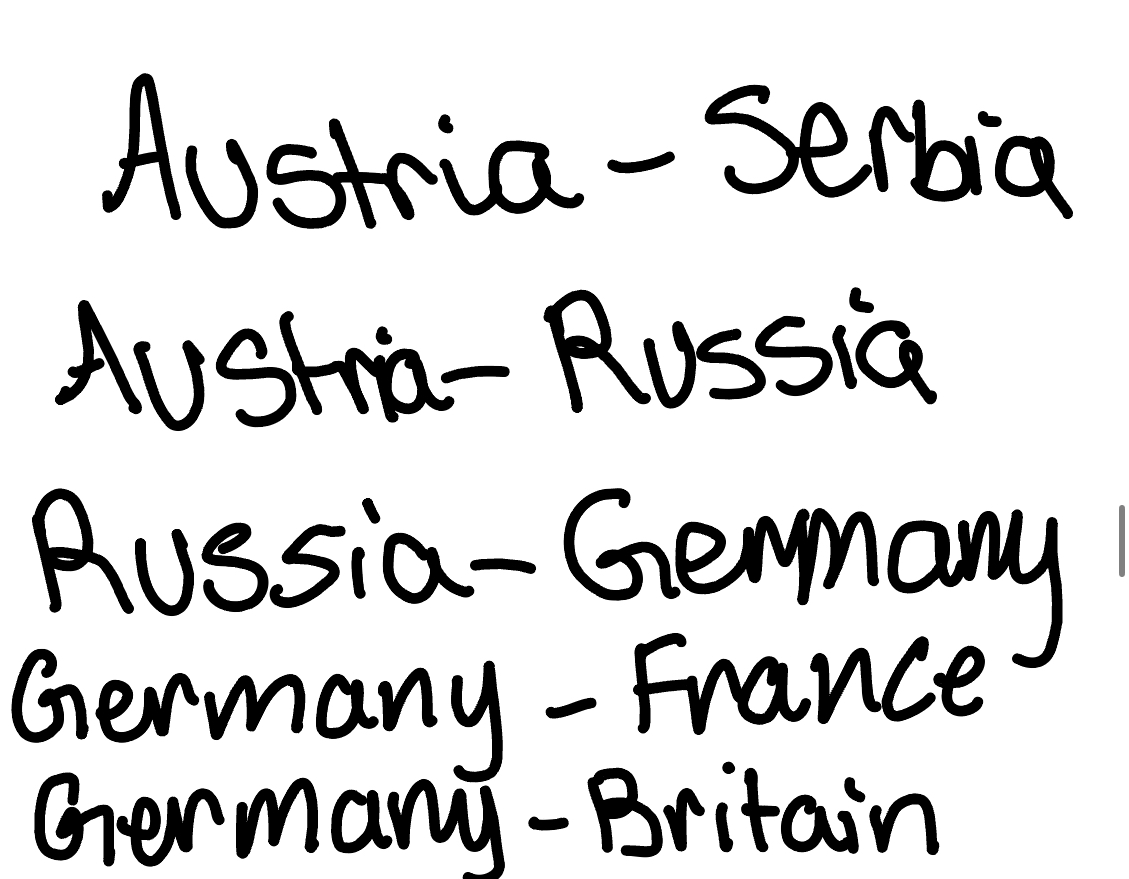american history imperialism
1/22
There's no tags or description
Looks like no tags are added yet.
Name | Mastery | Learn | Test | Matching | Spaced |
|---|
No study sessions yet.
23 Terms
Imperialism
Stronger nations, primarily for their own benefit, extend their economic, political, and/or military influence over weaker territories
What were the five reasons for the US to become an imperial nation?
-practical: the frontier was closed
-economic: global competition for markets
-military: expanded navy
-cultural: belief in superiority
Big stick diplomacy
“Speak softly and carry a big stick”
Use peaceful negotiations whenever it could, be willing to use military power when needed Caribbean in Latin America US as the policeman of the region US helped build the Panama Canal
Yellow Press
Newspaper that use sensational headlines, and exaggerated stories in order to promote readership
Emilio Anguinaldo
he was the leader of the Filipino forces that fought for independence against Spain in the 1890s illusion with the US present in the Philippines following the war, he helped organize and insurrection against the United States rule. He captured by United States forces in 1901, effectively ending the Filipinos fight for independence.
Treaty of Paris
Signed by Spain and the US in December 1898, it officially ended the war. Spain gave up control of Cuba, Puerto Rico, and the Pacific Island of Guam. It also sold the Philippines to the US for $20 million.
Rough Riders
Group of men, consisting of rugged, westerners, and upper class eastern nurse who fought during the Spanish American war
U-boat
German submarine
Lusitania
British passenger linear sunk by a German u boat during World War I
Zimmerman telegram
telegram Britain by German foreign minister Zimmerman proposing an alliance between Germany and Mexico against the US during World War I
14 points
List of terms for resolving World War I and future wars outlined by American president Woodrow Wilson
Four major reasons that the world fell into World War I
Military ism, alliances, nationalism, and imperialism
League of Nations
World organization established after World War I to promote peaceful corporation among countries
Selective service act
-law required all men between 21 and 30 to register for military
-in the American expeditionary force led by John Pershing called doughboys
Assassination: catalyst for WW1
The arch duke and his wife from Austria getting killed by black hand a Serbia group
Sides fighting in WW1

Unrestricted submarine warfare
The act of not allowing the people on a boat to safely get off the boat before sinking it
The Germans did not follow this they sunk the British ships, killing people on it
Alfred T. Mahan
He Urged the us to build a modern navy and get naval parts around the world to supply the ships
Social Darwinism
The strong (imperial) survive and the weak (the colonies) are conquered, and this is the natural way of life
Annexation of Hawaii
America’s annexation of Hawaii in 1898 extended US territory into the Pacific to the islands of Hawaii
USS Maine
The battleship that exploded in Havana Harbor in 1898-this event was what fueled the Spanish-American war
Woodrow Wilson
Was the 28th president of the United States during the World War I and he advocated for the league of nations, and created his 14 points
treaty of Versailles
a peace treaty that officially ended World War I between Germany and allied powers-it imposed, harsh terms on Germany, including territorial, losses, demilitarization, and massive reparations for the war